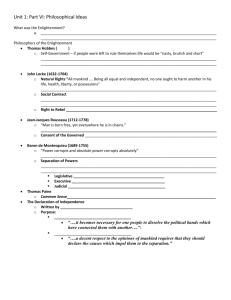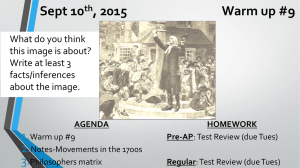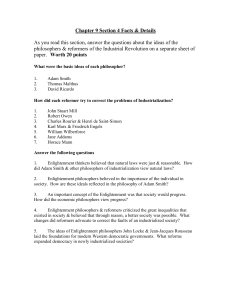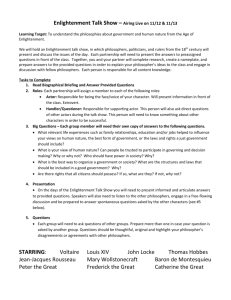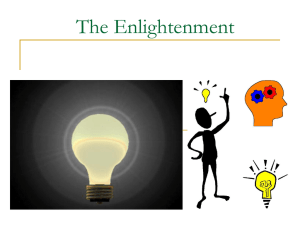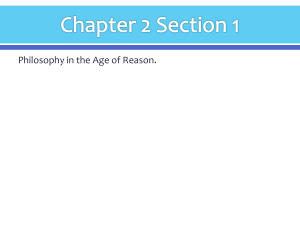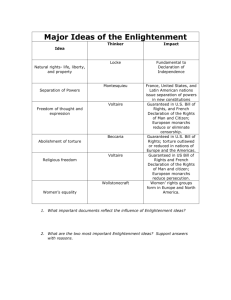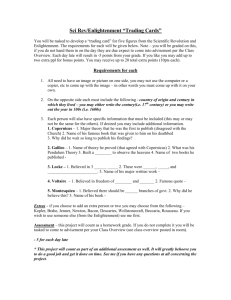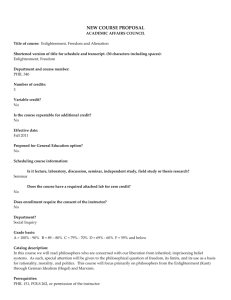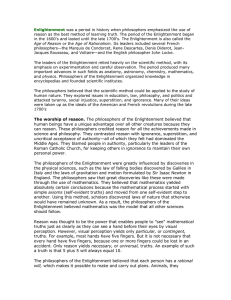Add Header – ODE Apple, no shaping - ODE IMS
advertisement
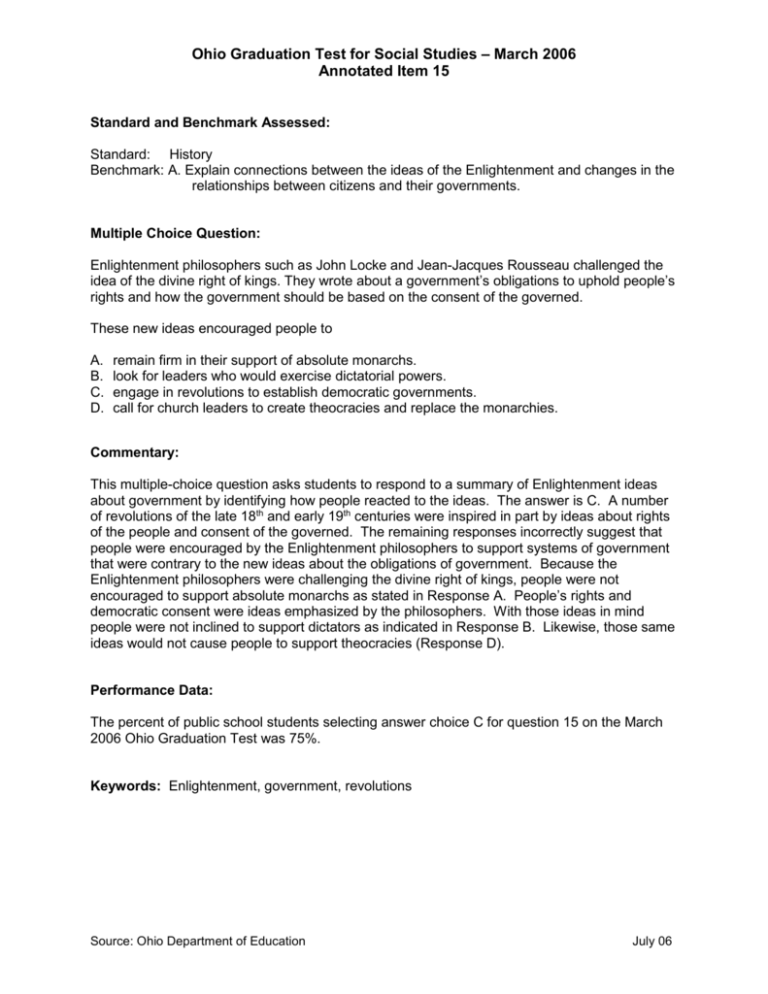
Ohio Graduation Test for Social Studies – March 2006 Annotated Item 15 Standard and Benchmark Assessed: Standard: History Benchmark: A. Explain connections between the ideas of the Enlightenment and changes in the relationships between citizens and their governments. Multiple Choice Question: Enlightenment philosophers such as John Locke and Jean-Jacques Rousseau challenged the idea of the divine right of kings. They wrote about a government’s obligations to uphold people’s rights and how the government should be based on the consent of the governed. These new ideas encouraged people to A. B. C. D. remain firm in their support of absolute monarchs. look for leaders who would exercise dictatorial powers. engage in revolutions to establish democratic governments. call for church leaders to create theocracies and replace the monarchies. Commentary: This multiple-choice question asks students to respond to a summary of Enlightenment ideas about government by identifying how people reacted to the ideas. The answer is C. A number of revolutions of the late 18th and early 19th centuries were inspired in part by ideas about rights of the people and consent of the governed. The remaining responses incorrectly suggest that people were encouraged by the Enlightenment philosophers to support systems of government that were contrary to the new ideas about the obligations of government. Because the Enlightenment philosophers were challenging the divine right of kings, people were not encouraged to support absolute monarchs as stated in Response A. People’s rights and democratic consent were ideas emphasized by the philosophers. With those ideas in mind people were not inclined to support dictators as indicated in Response B. Likewise, those same ideas would not cause people to support theocracies (Response D). Performance Data: The percent of public school students selecting answer choice C for question 15 on the March 2006 Ohio Graduation Test was 75%. Keywords: Enlightenment, government, revolutions Source: Ohio Department of Education July 06
